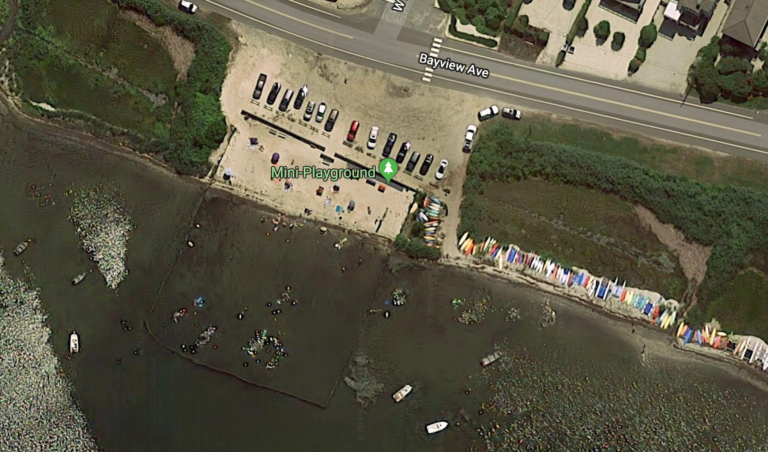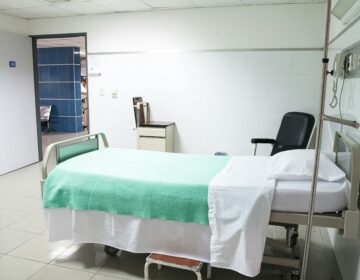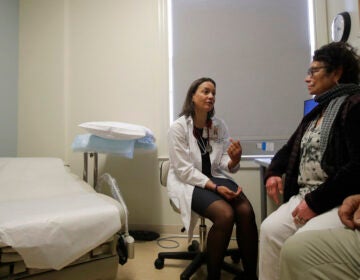Excessive fecal bacteria continues to plague N.J. beach
For the fourth consecutive week, a Barnegat Bay beach in northern Long Beach Island is under a swimming advisory due to excessive fecal bacteria, officials said.

The 25th Street bay beach in Barnegat Light. (Google image)
UPDATE: The New Jersey Department of Environmental Protection discontinued the swimming advisory at the 25h Street Barnegat Bay beach in Barnegat Light Wednesday after an acceptable resampling result, officials said.
For the fourth consecutive week, a Barnegat Bay beach in northern Long Beach Island is under a swimming advisory. The advisory was issued Tuesday afternoon due to the water exceeding the allowable bacteria threshold, state officials said.
According to the state Department of Environmental Protection’s njbeaches.org, the advisory is posted at the 25th Street bay beach in Ocean County’s Barnegat Light. No other New Jersey beaches are under a swimming advisory or closure.
The standard for the acceptable level of enterococcus, a bacteria found in the intestines of warm-blooded animals that can cause urinary tract infections, bacteremia, bacterial endocarditis, diverticulitis, and meningitis, is 104 colonies per 100 ml of water.
A water sample collected on Monday registered 190 colonies, nearly two times allowable limit. Last week, a Monday sample registered 470 colonies, or more than four-and-a-half times the allowable limit. The beach was closed for one day two weeks ago.
Some waterways are typically susceptible to higher bacteria levels after rainfall and associated storm runoff.
State officials last Thursday afternoon said that an “antibiotic resistance analysis” on samples collected in areas draining from a marsh wetland immediately north and south of 25th Street bay beach indicated “domestic animal” as the source.
“It’s been noted early in the morning, many people walk their dogs along this beach. 1 gram of dog feces contains about 23 million fecal coliforms,” a posting on the njbeaches.org Twitter account states. “The average dog produces 200g of feces a day that would calculate to 1 dog producing approximately 4.6 billion fecal coliforms daily.”
But the officials caution that dog feces “may or may not” be the only source of elevated bacteria levels.
“We continue to conduct source tracking with (the Long Beach Island) Health Department & Marine Water Monitoring. Our next step is to conduct tide cycle boat sampling,” another tweet notes.
The state tests water quality at 188 ocean beaches, 20 bay beaches, and eight river beaches and issues advisories one day following an unacceptable bacteria level.
Beaches are closed if two consecutive samples collected at a bathing beach exceed the state standard and remain in effect until subsequent sampling indicates bacteria levels are again below the standard, according to the DEP.
State data indicates that the vast majority of swimming advisories are discontinued after retesting, and beaches are rarely closed.
You can check water quality at your local beaches here.
WHYY is your source for fact-based, in-depth journalism and information. As a nonprofit organization, we rely on financial support from readers like you. Please give today.




